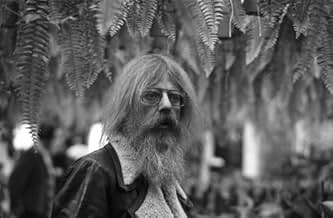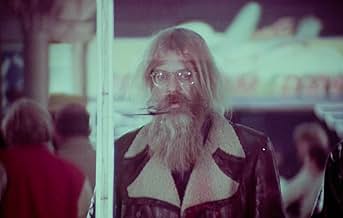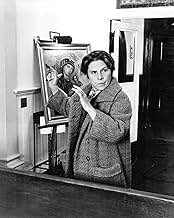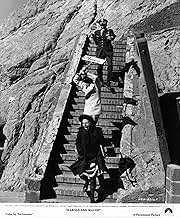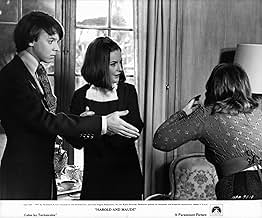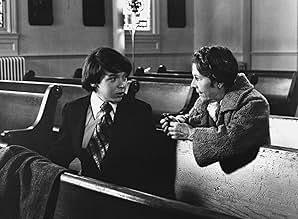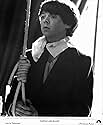Young, rich, and obsessed with death, Harold finds himself changed forever when he meets lively septuagenarian Maude at a funeral.Young, rich, and obsessed with death, Harold finds himself changed forever when he meets lively septuagenarian Maude at a funeral.Young, rich, and obsessed with death, Harold finds himself changed forever when he meets lively septuagenarian Maude at a funeral.
- Nominated for 1 BAFTA Award
- 3 wins & 3 nominations total
Charles Tyner
- Uncle Victor
- (as Bill Durham)
Tom Skerritt
- Motorcycle Officer
- (as M. Borman)
Ray K. Goman
- Police Officer
- (as Ray Goman)
Gordon De Vol
- Police Officer
- (as Gordon DeVol)
Sonia Sorel
- Head Nurse
- (as Sonia Sorrell)
- Director
- Writer
- All cast & crew
- Production, box office & more at IMDbPro
7.885.1K
1
2
3
4
5
6
7
8
9
10
Featured reviews
A classic.
This art house favorite is a timeless classic and recommended viewing for all post-Catcher In the Rye teenagers. To modern viewers, the Ruth Gordon creation of Maude probably seems trite, but her Maude was fresh, original and daring in 1970 and the pre-Sophie's Choice twist in her history that Harold discovers was likewise unanticipated by early viewers. Unfortunately, Ruth Gordon went on to recreate this character in lesser films throughout that decade and the character of the eccentric old lady has become rather shopworn.
The Cat Stevens soundtrack is probably one of the most effective use of pop music in film ever.
The Cat Stevens soundtrack is probably one of the most effective use of pop music in film ever.
A 'tour de force' of a film and one of Hal Ashby's best films
'Harold & Maude' is one of those 'sleeper' films that just seems to resonate that bit more with every passing year. Harold, played by the criminally under-utilized Bud Cort, is the quintessential disaffected rich kid wanting to find some meaning in a vacuous life who hooks up with the devil-may-care Maude through their mutual love of attending funerals (Joyce's word 'fun-for-all' springs readily to mind in those scenes). There is plenty to love about this film, the slower pace and the lampooning of easy targets, the 'gung-ho' military uncle and the fetishist priest for example. Here is a film that really stands up well to repeated viewings.
Death, Love and Life
The self-destructive and needy wealthy teenager Harold (Bud Cort) is obsessed by death and spends his leisure time attending funerals, watching demolishing of buildings, visiting junkyards, simulating suicides trying to get attention of his indifferent, snobbish and egocentric mother and having sessions with his psychologist. When Harold meets the anarchist seventy nine year-old Maude (Ruth Gordon) at a funeral, they become friends and the old lady discloses others perspectives of the cycle of life for him. Meanwhile his mother enlists him in a dating service and tries to force Harold to join the army. On the day of the eightieth anniversary of Maude, Harold proposes her but he finds the truth about the end of the cycle of life.
The cult "Harold and Maude" was a huge success in Brazil for people of my generation with a refreshing and funny exposition of themes like death, love and life through the friendship and love of a teenager and a septuagenarian woman. The complex Harold is a young man that needs the attention of his indifferent mother. He found in his childhood the only moment that she really seemed to be worried about him after a serious accident in school and he uses to fake suicides trying to have the same attention back. Maude is an anarchist old woman not attached to material stuff like properties or collections that steals cars for self-locomotion. Along a few days, Maude gives a lesson of life to Harold, changing his behavior and feelings forever. The performances of Ruth Gordon and Bud Cort in this weird love story are unforgettable and the soundtrack with Cat Steven's songs is another plus. Unfortunately "Harold and Maude" has been forgotten in Brazil by the distributors and neither the VHS nor the DVD has been released in my country; I just have a tape recorded from the cable TV. My vote is eight.
Title (Brazil): "Ensina-me a Viver" ("Teach me to Live")
The cult "Harold and Maude" was a huge success in Brazil for people of my generation with a refreshing and funny exposition of themes like death, love and life through the friendship and love of a teenager and a septuagenarian woman. The complex Harold is a young man that needs the attention of his indifferent mother. He found in his childhood the only moment that she really seemed to be worried about him after a serious accident in school and he uses to fake suicides trying to have the same attention back. Maude is an anarchist old woman not attached to material stuff like properties or collections that steals cars for self-locomotion. Along a few days, Maude gives a lesson of life to Harold, changing his behavior and feelings forever. The performances of Ruth Gordon and Bud Cort in this weird love story are unforgettable and the soundtrack with Cat Steven's songs is another plus. Unfortunately "Harold and Maude" has been forgotten in Brazil by the distributors and neither the VHS nor the DVD has been released in my country; I just have a tape recorded from the cable TV. My vote is eight.
Title (Brazil): "Ensina-me a Viver" ("Teach me to Live")
I loved this!
I want to BE Maude when I am older. Ironically, I have never seen a movie that was so full of life and joy. There are many little things in this movie, little details and gags, that increase the movie's replayability. The acting is amazing. Ruth Gordon and Bud Cort have wonderful chemistry,which is a tribute to the their acting ability, as well as the tight writing and solid direction. I was sad that this movie did not garner more recognition than it did when it was released. I am also disappointed that Bud Cort has not starred in more things since this movie. Oh well. This is a good Hal Ashby movie to start with, but if you get a chance you should watch as many as possible. They are quirky, thoughtful and wonderful. "Harold and Maude" is a paean to life and love, even if it's in the weirdest places.
The reason movies exist!
I only saw this film quite recently but it hopped straight to my number one film of all time. It is beautiful. Bud Cort is charming as Harold and Ruth Gordon - dare I say cute? As Maude. If I look like her when I'm eighty I'll be out there nicking cars and fluttering my eyelashes at policemen too! Maude wrenches Harold free from his morbid and lonely existence to show him how lush and amazing the world can be and he emerges from his experiences a happy man. This is definitely one of the films that (along with say, Fight Club, American Beauty and The Rocky Horror Picture Show) show you can be who you want to be, and you needn't let anyone oppress you. It's brilliant. Everyone should know a Maude. It has inspired me to buy a banjo and play Cat Stevens songs.
Did you know
- GoofsWhen Maude pulls the banjo out of a cabinet, you see the reflection of crew and lights.
- ConnectionsEdited into The Kid Stays in the Picture (2002)
Details
- Release date
- Country of origin
- Language
- Also known as
- Enséñame a vivir
- Filming locations
- 10 Stacey Court, Hillsborough, California, USA(Chasen Family mansion)
- Production company
- See more company credits at IMDbPro
Box office
- Budget
- $1,200,000 (estimated)
- Gross worldwide
- $4,535
Contribute to this page
Suggest an edit or add missing content


![Harold and Maude: The Criterion Collection [Blu-Ray]](https://m.media-amazon.com/images/M/MV5BMTMyMzU1YjgtMDhkYS00NzlkLWFjNzgtMGQwNjEwMjdjYTAyXkEyXkFqcGdeQXVyNzU1NzE3NTg@._V1_QL75_UX500_CR0)

